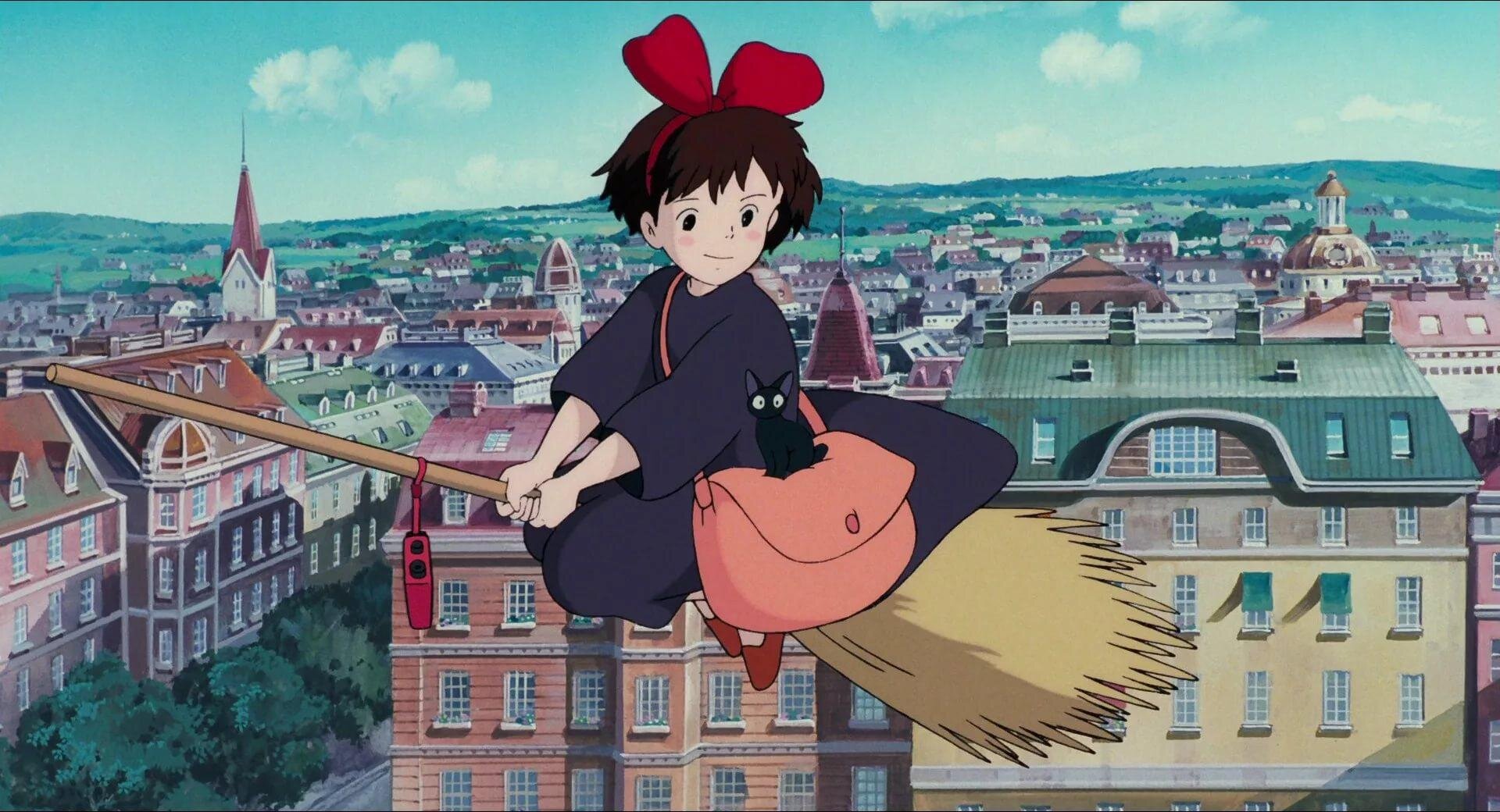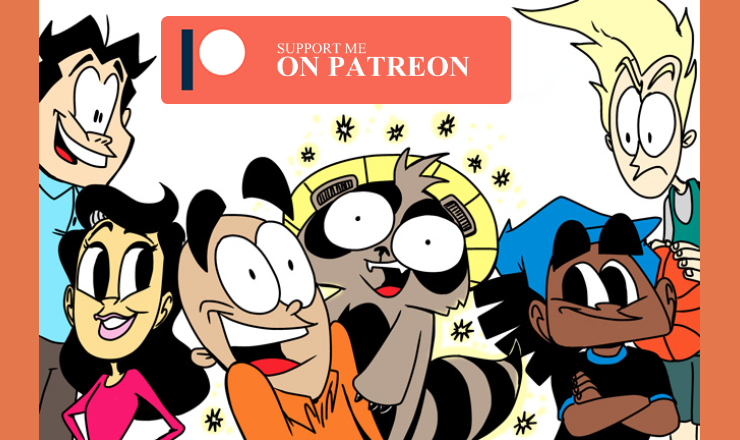4 Magical Life Lessons From a Japanese Animated Kids Film
/How this Hayao Miyazaki movie can help you pare down your expectations and have a more fulfilling life.
Moving to a new town, as a mere 13-year-old, to set up life as the local witch is Kiki’s goal in the charming animated film Kiki’s Delivery Service, directed by Hayao Miyazaki.
The only problem, she has very little money and only one magical power—flying on her broomstick.
How can she expect to make a successful life for herself, starting with so little? It’s easy at first. Do you know why?
She was open to meeting people and having new experiences. Not to mention living simply and using her unique gift to start a business.
I love animated movies by Studio Ghibli, but even after two years living in Japan, watching most of their animated films, I never viewed this one. It looked cute but didn’t pull me in like Princess Mononoke or Spirited Away.
My wife and daughter wanted to watch it for our “Family Movie Night,” and I tried not to groan. I slumped into my recliner, ready for the injection of sweetness into my veins.
To my surprise, it wasn’t as sweet as, say, Ponyo, but quite pleasant and full of adventure. In fact, the climactic final act was thrilling and expertly directed. I won’t give it away here, but if you’ve seen it, I bet you were on the edge of your seat.
Kiki’s life was one I admired. Not only because she had magical powers, believe it or not—but because she had confidence, freedom and wasn’t afraid to live a simple life while working towards her goals.
These four takeaways from Kiki’s Delivery Service could help you enjoy a more fulfilling life.
1. Live with only what you need
Kiki befriends the owner of a bakery and is offered a room out behind the store. It’s old, dusty and only has a rickety bed and one table. She takes it with gratitude, cleans it up, and recognizes all she needs is a place to sleep and eat.
When Kiki goes shopping with her black cat Jiji, she prepares him because they have very little money and will have to live on eating pancakes until she can earn more.
Pancakes, y’all.
I would have at least chosen salad. Either way, let’s appreciate that she has the confidence to know her situation will change in the future. There’s nothing wrong with living on very little when you start.
Is it just me, or is this idea losing favor in modern times? Are we turning away from meager beginnings with young people leaving college and just moving home with their parents?
Look, I know everyone expects to be poor when they’re in college, but what’s wrong with getting any job you can afterward and moving in with roommates? You learn a ton about life and what truly makes you happy.
We can take that into any season of life and look to remove the unnecessary.
From what I’ve seen from living over forty years of life, people keep acquiring more and building up taller mountains of stress.
Taking on the idea of living only with what you need applies to material possessions as well as your mental baggage. What beliefs about people and life can you discard from your thinking?
Do you need therapy to lighten your mental load? Have the courage to find a professional to talk with and let some of that go.
When I moved to Osaka, Japan, to teach English in Junior High Schools in my late twenties, I could only bring two suitcases with me even though I had a whole one-bedroom apartment full of stuff.
It was a pain to give away and sell all of that, but boy, did it help me feel lighter physically and emotionally. When I arrived in Osaka, in an old empty apartment, I felt like Kiki. Excited to be in a new place but scared of the unknown.
Fortunately, I had a job, but that was about it. Life was fresh, new, and very foreign.
I chose not to fill my apartment with furniture and kept it pretty bare-bones. It helped me think clearly and feel less stress from the culture shock of adjusting to a new country.
One thing you’ll notice is with all that space, you can think about the positives and negatives in your life. It might lead you down the road to depression.
If you end up down in the dumps emotionally, my next tip might help.
2. Use your unique talents to help others
Doing work that helps others is incredibly rewarding. What you do doesn't have to be complicated either. Take an honest look at yourself and find what makes you special or unique. You could also ask your friends or family members to tell you what they think you do well.
Pursue work that utilizes your talents and can add value to someone's life.
Kiki did this in the film. When she first moves to the little European town inspired by Visby, Sweden, she had no idea how to make money.
She was a witch but hadn’t learned spells or any other magic besides flying on her broom. Kind of like when you’re young and have only a small amount of life experience. She discovered that people could use help delivering packages around town.
So, she did just that. Of course, not without her challenges, or it wouldn’t be much of a story, but she found work.
Work that helped make life easier for others.
We all want to make money doing what we love but remember to make a difference. When you help others, it helps you feel better about yourself and lead to amazing life experiences.
If you stay open to them.
Being an art teacher for almost twenty years has been hugely rewarding. Is teaching a tough job at times? Heck, yeah! Being a part of helping young people grow and appreciate art is exciting. When I was in college studying art, I thought becoming a teacher would mean I failed as an artist.
I see now how it adds to my life with more than a paycheck and summers off. Making a difference with something I love.
3. Lower your expectations
I’m not saying working towards big dreams is wrong. Just stop putting so much into outcomes and results. The less you expect, the more you appreciate.
I’ve learned that a simple life is one to admire.
It’s true what Notorious B.I.G. said, “Mo’ money mo’ problems.”
Mainly because you have more responsibilities. Which is fine as long as you accept that fact. Living with more is a huge responsibility filled with difficult decisions and daily stress.
I noticed in the movie that Kiki continued living in her little room behind the bakery. She continued her delivery business and helped people in the city. Perhaps she could have afforded to move out and get her own apartment. Surely, it would have cost more and possibly pulled her away from close friends.
No need to move on to get more if you’re happy where you are.
Opening up to needing less can make space for more peace to pour into your life as long as you make a conscious decision not to expect too much. Finding your dream job will not solve all of your problems and suddenly make life perfect.
Even when you do all of this, you’re loving life and growing in your career; you may feel out of sorts and lose motivation all of a sudden.
4. Recharge your batteries
I guess you could call this a **SPOILERS** ahead moment, so skip this paragraph if you haven’t seen the film. Kiki’s magic vanishes, and she’s not able to fly on her broom to make deliveries. This sets her back and wrecks her confidence. It’s not until a friend shares with her that most people lose interest in their work or go through creative slumps.
If this is you, take a break. Rest. Give yourself space from whatever it is you’ve lost that fire for so you can breathe a bit and recharge. If it’s something important, you’ll find the spark to ignite the flame again.
Kiki certainly gets her magical mojo back, but I won’t tell you what gets her there.
Some ways to re-ignite your fire:
Sleep more. I’m serious. Go to bed early for a few days in a row or sleep later on the weekends. Take naps. Sleep has been known to cure so many health issues.
Put a pause on whatever you’re working on that’s draining you, and learn something new. Watch something you wouldn’t normally. Read a new book in a genre you hate. This will force you to think differently and stay open to new ideas.
Meditate. You knew I would mention this one. Giving yourself quiet alone time to be mindful of your body and thoughts will help your mental wellness.
Talk with family and friends about what you’re going through. They might have experienced something similar and could give you advice. Even if they haven’t, taking time to express how you’re feeling with someone you care about is a great release of any negativity you’ve been holding onto.
Final words
One of the hardest things for me to accept in life was that good things take time. Patience has always been a challenge for me. Not that I want everything now, but I wish it all would get here quicker.
It seemed to me that Kiki was fine with slowly building her life in one place. I love that. Yes, she’s just an animated cartoon character, but I envied her spirit. Maybe it’s because I’m a middle-aged man dreaming about the early days out in the world. Or, I needed the reminders the film brought forth.
There’s no shame in starting small, using your talents to work towards a successful career, and having patience with the process. Life can be less stressful and pretty darn magical when you know your needs and limit your wants.


























